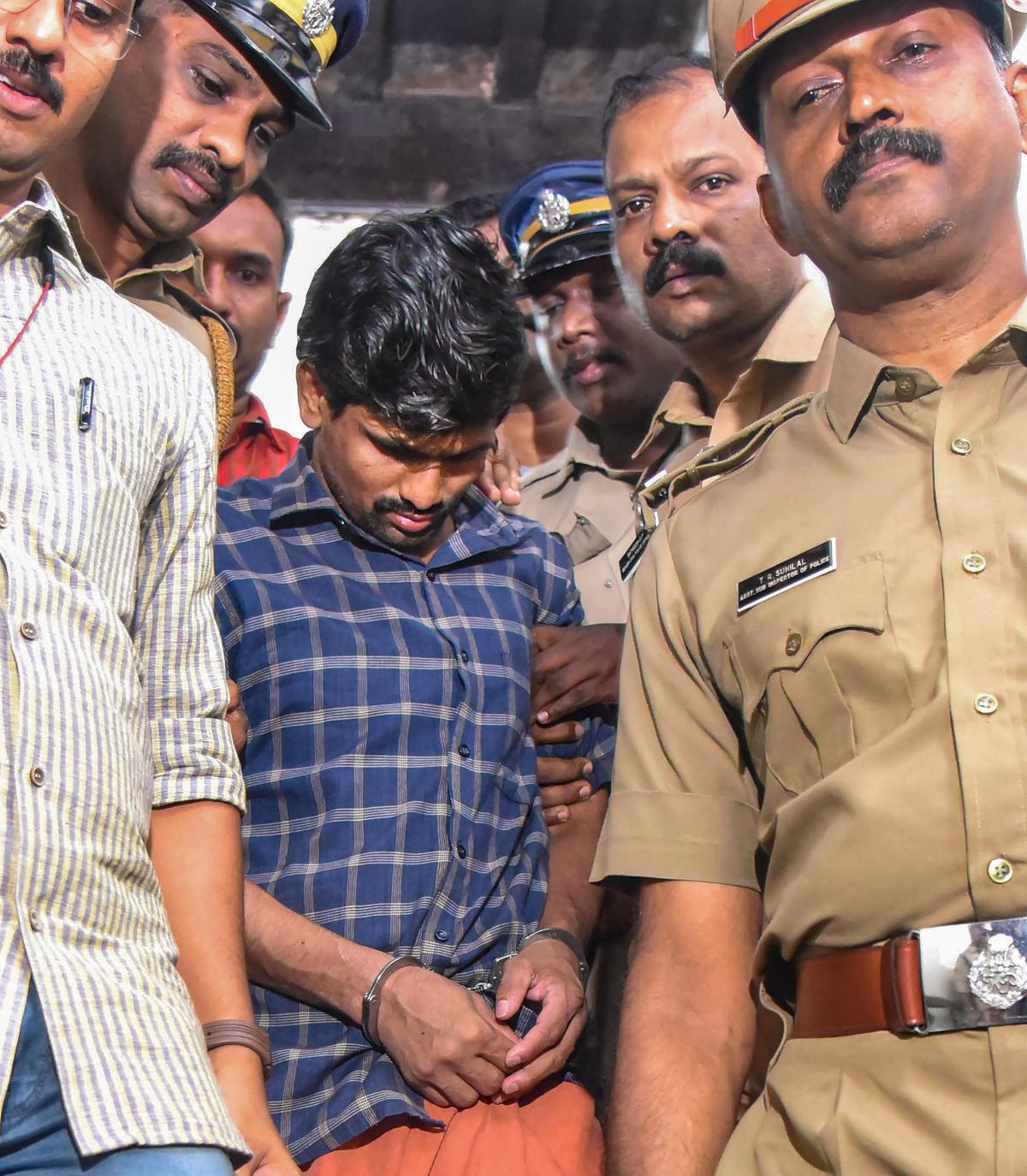A tragic incident that shook the town of Aluva, Kerala, a heinous crime involving the rape and murder of a 5-year-old has garnered widespread attention. However, a ray of hope emerges as the Kerala court delivers a swift and decisive verdict, sentencing the accused to death within a mere four months of the appalling incident.
Additional District and Sessions Judge K Soman pronounced the sentence today, after having convicted Alam for the crime on November 4.
The crime occurred in july this year, when Alam, a migrant worker from Bihar, abducted, raped and killed the five-year-old victim girl, who lived in the same building as he did. This incident sent shockwaves through the community, sparking outrage and demands for justice. The young victim’s family, along with concerned citizens, clamored for speedy legal action to ensure that the perpetrator faced the consequences of their heinous actions. The child’s body was discovered in a sack in a swampy area behind a local market in Aluva.
Perpetrator, Alam faced sixteen charges, including aggravated penetrative sexual assault, rape and murder under various Sections of the POCSO Act and the Indian Penal Code.
In response, The Kerala court pronounced verdict within four months, the POCSO court on November 4, found Alam guilty of all sixteen charges.
Additional District and Sessions Judge K Soman who hears cases concerning offences under the Protection of Children from Sexual Offences Act (POCSO Act) pronounced the sentence today after having convicted Alam for the crime on November 4. The conviction and sentence were handed down within four months of the incident. The punishment for the crime was pronounced on nov 14.

The conviction of perpetrator, Alam was accordingly thirteen legal provisions, which fell under the Indian Penal Code (IPC) and the POCSO Act.
These included Sections 302 (murder), 376 (rape), 377 (unnatural sex), 328 (hurt by use of poison), 364 (kidnapping for murder), 366 (a) (procuration of minor girl), 367 (kidnapping for causing grievous hurt), 297 (indignity to human corpus), and 201 (disappearance of evidence) of the Indian Penal Code. Further, he was also punished for offences under three sub-sections of Section 5 (penetrative sexual assault) and Section 6 (sexual assault) of the POCSO Act and Section 77 (giving intoxicating liquor) of the Juvenile Justice Act.
The death sentence imposed on Alam was for the offence of murder, whereas he was sentenced to life imprisonment for rape and the offences under the POCSO Act.
For the offences under Sections 364, 366A, 367, and 328 of the IPC, he was sentenced to ten years of rigorous imprisonment each. For hiding evidence, he was sentenced to five years of rigorous imprisonment. For the offence under Section 77 of the JJ Act, he was sentenced to three years of rigorous imprisonment. For the offence of causing indignity to a human corpus, he was sentenced to one year of rigorous imprisonment.
Apart from the jail sentences, Alam was ordered to pay fines as well for each of the offences, ranging between ₹10,000 to ₹1 lakh. A fine of ₹ 1 lakh was imposed for the offences of rape, murder and the offences under the POCSO Act.
The sentence pronounced on Nov 14, which comes on the 110th day after the crime, which reportedly took place on July 28.
The Ernakulam Court had begun hearing the matter on September 7. Charges were framed and read over to the accused on September 16, following which the matter was heard from October 4 onwards.
This swift justice not only reflects the severity of the crime but also demonstrates the legal system’s commitment to delivering timely and decisive outcomes, providing some solace to the grieving family.

The Aluva tragedy serves as a stark reminder of the urgent need for societal vigilance and effective legal measures to protect the most vulnerable. The Kerala court’s expedited judgment in this case reflects a commitment to justice and sends a strong signal that heinous crimes will be met with swift and severe consequences.

